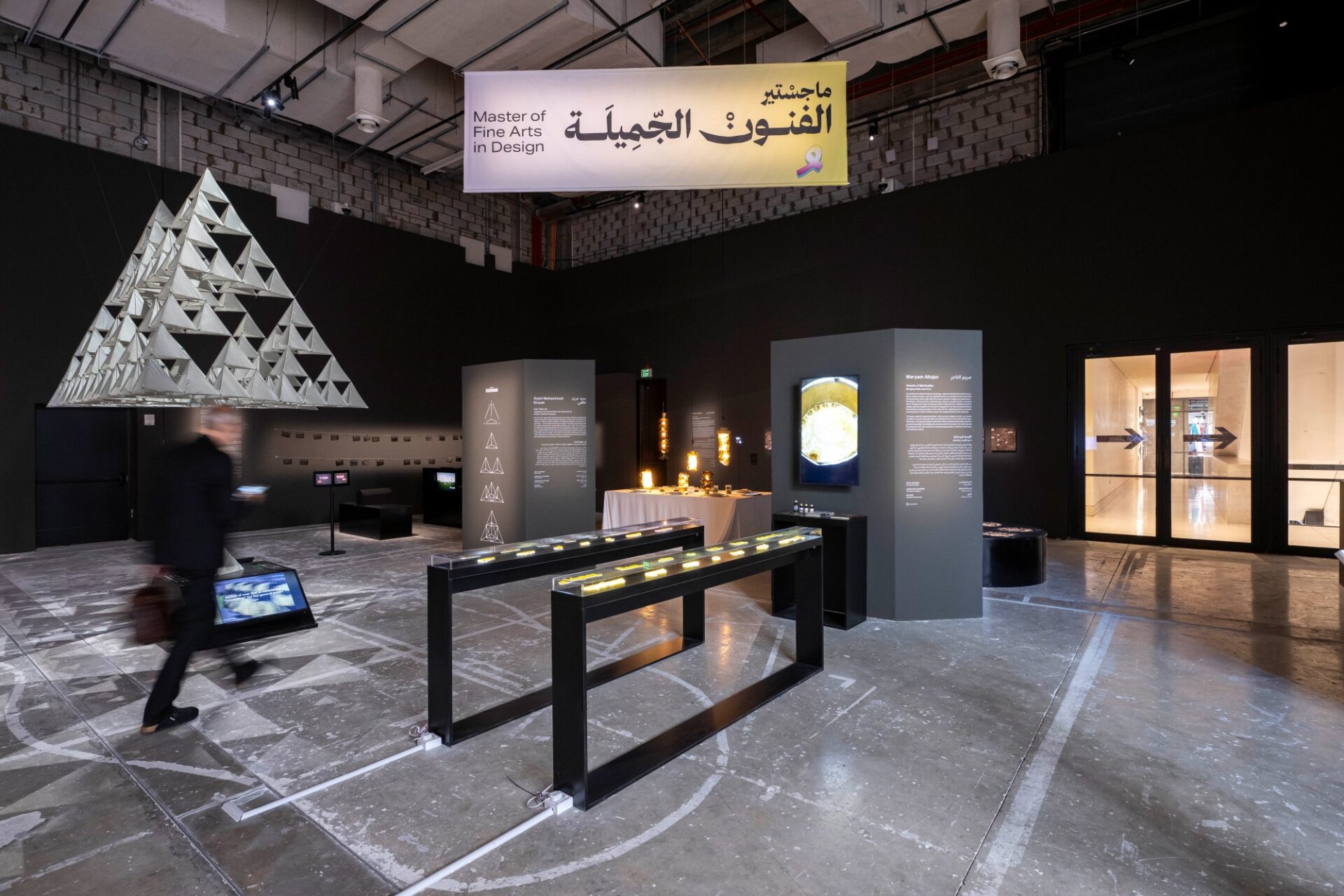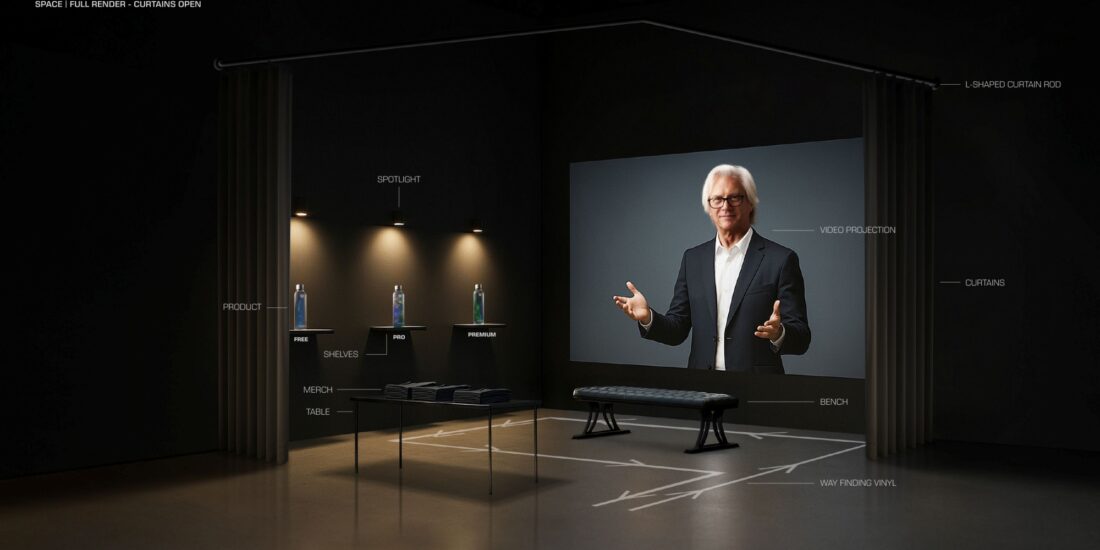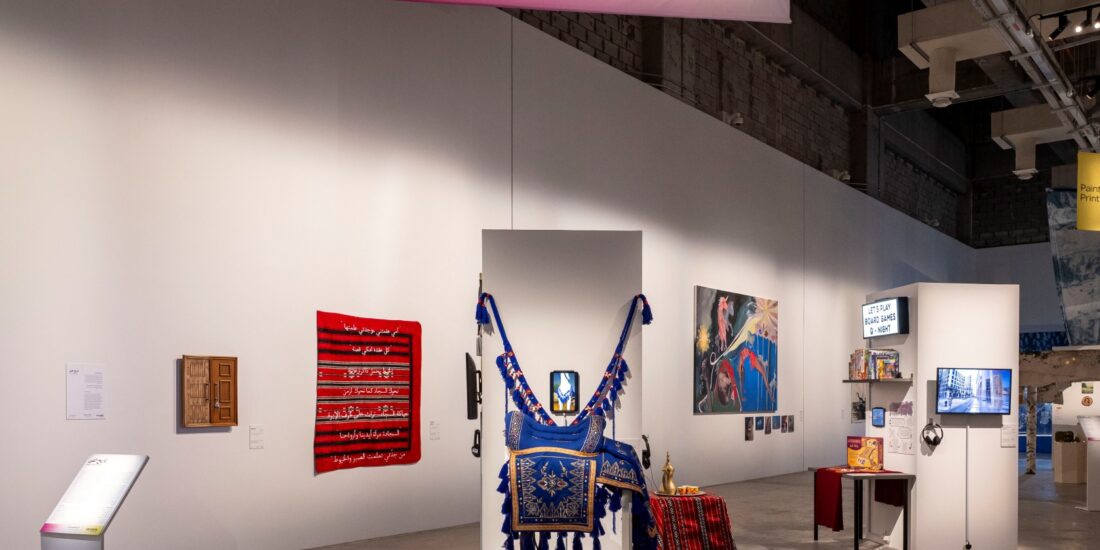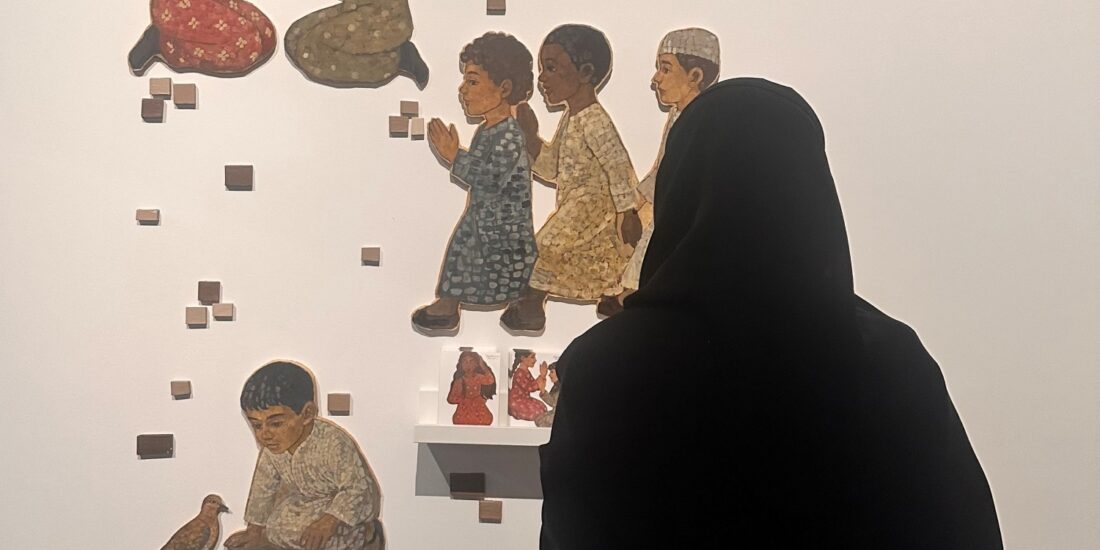Ayza Sheikh’s ‘Inherited Wounds’ Turns Trauma into Play
How do you talk about the things that are most difficult to express, especially across generations, or between a mother and a daughter? For Pakistani designer and MFA graduate of VCUarts Qatar, Ayza Sheikh, the answer lies not only through the traditional tools of conversation, but through easier methods of play.
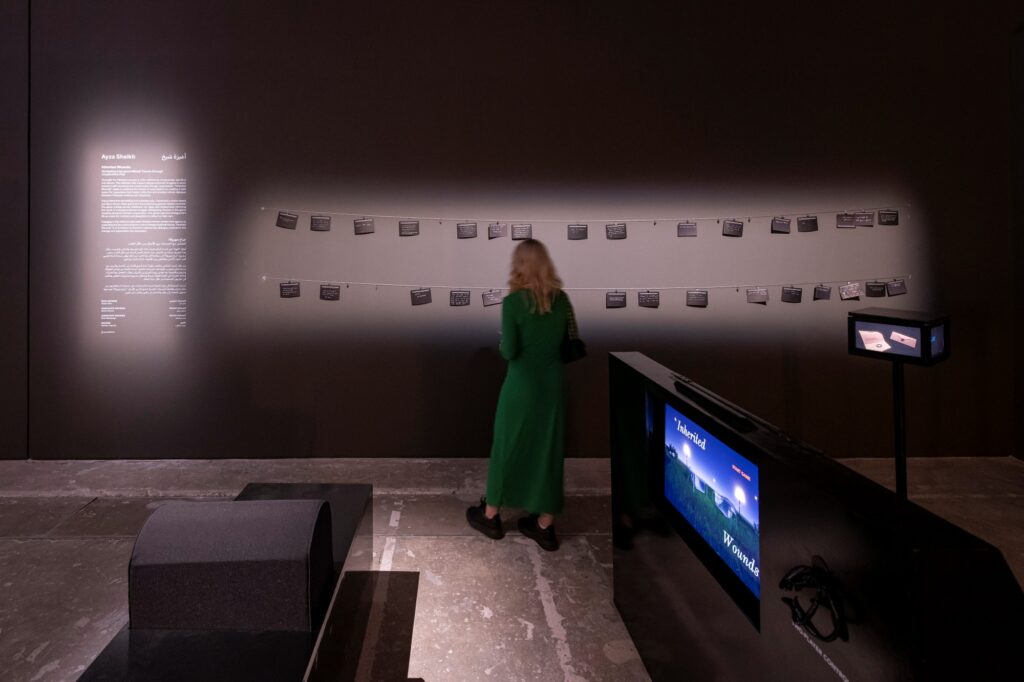 Ayza Sheikh’s thesis project, Inherited Wounds, exhibited at the VCUarts Qatar Final Year-End Show Art & Design Now, featured an interactive segment that invited viewers and friends of the designer to write anonymous notes to their mothers, each note expressing a message they had always wanted to share but never had the courage to.
Ayza Sheikh’s thesis project, Inherited Wounds, exhibited at the VCUarts Qatar Final Year-End Show Art & Design Now, featured an interactive segment that invited viewers and friends of the designer to write anonymous notes to their mothers, each note expressing a message they had always wanted to share but never had the courage to.
The resulting wall of messages ranged from tender declarations of unconditional love, to heartfelt pleas urging mothers to care for themselves, and even powerful calls for one mother to walk away from the source of her trauma. This installation became a raw, emotional tapestry, a physical manifestation of the deep love mothers inspires, and the complex pain and burden that often accompany the role of caregiving.
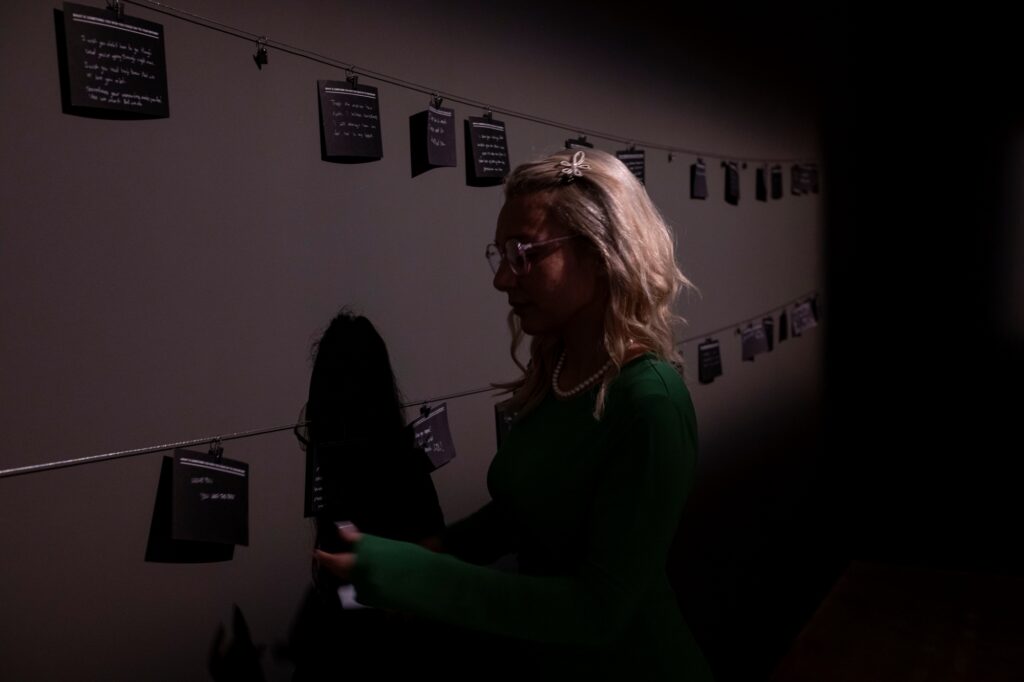 But this installation was only one part of Ayza’s larger research, a project that seeks to bridge emotional and generational divides between Pakistani mothers and daughters. And in this instance, Ayza takes a bold, unexpected route: she designs a video game.
But this installation was only one part of Ayza’s larger research, a project that seeks to bridge emotional and generational divides between Pakistani mothers and daughters. And in this instance, Ayza takes a bold, unexpected route: she designs a video game.
From Silence to Cooperative Play and Shared Stories
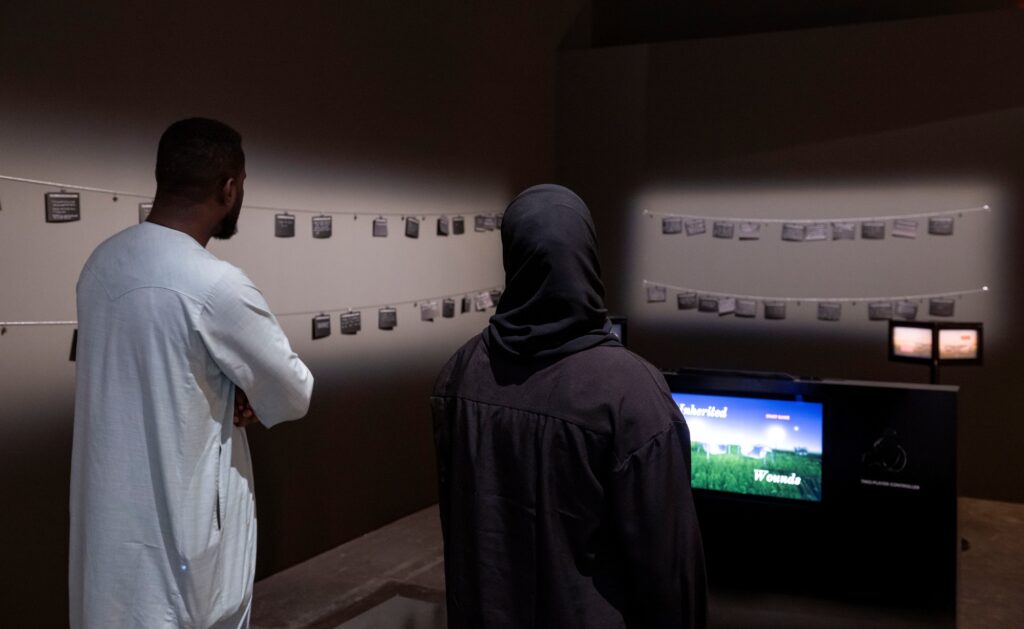 Inherited Wounds: Navigating Intergenerational Trauma through Cooperative Play, reimagines the possibilities of dialogue through a deeply personal and culturally resonant medium: a gesture-controlled, narrative-based video game.
Inherited Wounds: Navigating Intergenerational Trauma through Cooperative Play, reimagines the possibilities of dialogue through a deeply personal and culturally resonant medium: a gesture-controlled, narrative-based video game.
This innovative work invites Pakistani mothers and daughters to co-navigate the life of a fictional protagonist, tracing her journey from childhood to marriage and into motherhood, mirroring the familiar life trajectories of women across generations.
“My project is looking at the cycle of intergenerational trauma specifically between Pakistani mothers and daughters,” Ayza explains. “I created an interactive, choice-based, narrative-driven video game using embodied play through a gesture-based controller.”
What might seem like an unconventional platform, a video game, is exactly what makes the project compelling. By stepping into the life of a protagonist and making critical decisions together, players are able to approach emotionally fraught topics from a shared, mediated space.
“I wanted to create a space of expression for Pakistani mothers and daughters… to have those difficult conversations that would be really hard to have just sitting on a dining table,” she says.
Each stage in the game, whether it’s choosing whether to confront a father’s authority, plead with a mother, or remain silent, offers an opportunity for reflection. Ayza emphasises that the game is not about right or wrong answers but about opening up space for real emotional engagement.
“The idea is that using the protagonist’s life, the mother and daughter can really sit and think and discuss the issues they see in their own lives.”
Strength in Connection
At the heart of the project is a fundamental question: What does it mean to be a strong Pakistani woman?
“Is the definition of strength compromise, sacrifice, and silence?” Ayza asks. “Or is the definition of strength something else?”
With Inherited Wounds, strength is redefined, not as endurance in isolation, but as connection through expression. The gesture-based controller reinforces this: physical cooperation becomes a metaphor for emotional collaboration.
By turning reflective play into a tool for healing, Ayza Sheikh’s work transforms silence into dialogue, suppression into agency, and inherited wounds into a shared path toward understanding.
Inherited Wounds is not just a game, it’s an act of reclamation, an act to voice pain through lesser traumatic methods.

